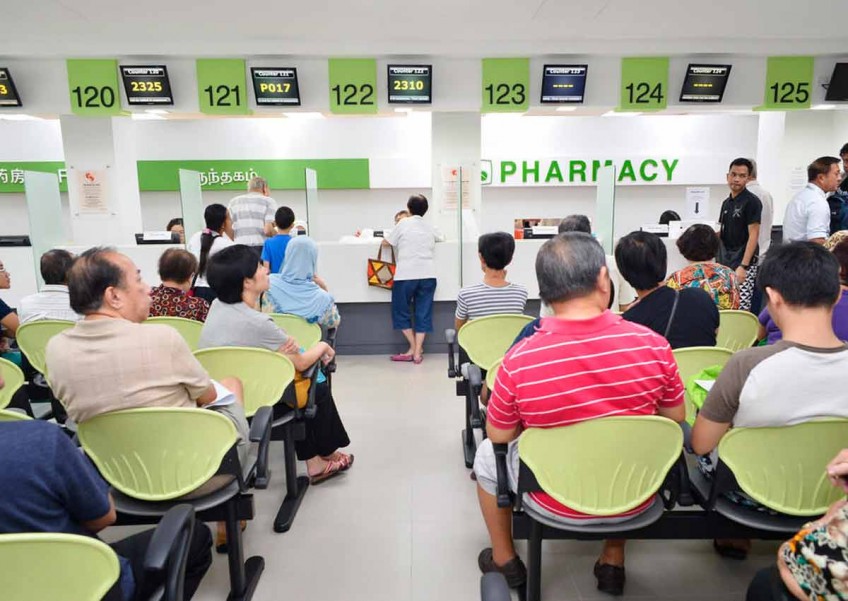Does Singapore have culture of faking illness to skip work? Not really, say bosses

SINGAPORE - Whether it's because we've stayed up till the wee hours to watch that highly-anticipated football match or simply woken up late in the morning, we've all had days when we feel like calling in sick to take a day off from the daily grind.
The excuses are stock and ready to roll out when we see the doctor: Stomach flu, headache, cramps and diarrhoea.
And when the deal is done, we walk out the doctor's office, miraculously "healed", armed with the holy grail of medical documents - the medical certificate.
But are employees who feign illnesses to shun work really a rampant problem in Singapore?
A survey from 2012 found that close to one in five workers had faked an illness to get a medical certificate (MC).
A quick online search also revealed various forum threads of people asking for advice on how to get fake MCs.
In one Reddit thread, a user even suggested that migraines were a good excuse to give, as it is more difficult to prove the symptoms.
According to MOM's Conditions of Employment 2016 report, about 60 per cent of employees took sick leave in 2015, with employees on average taking 14.2 days of sick leave in a year.
Employers who spoke to AsiaOne were divided on the issue.
Read also: Some SIA cabin crew unhappy over medical leave system
Ms Esther Chan, a vice-president at fashion retailer Kwang Sia, noted that there were staff who seemed to often take medical leave to coincide with the day before or after a public holiday.
"There have even been cases when we saw staff claim they were sick but then posted photos of their activities that day on social media," she told AsiaOne.
She also lamented it can be difficult to prove when a staff is feigning an illness.
"When we start seeing a trend, we will alert our human resource department which will check with the doctors. But the doctors usually say they were erring on the side of caution after getting complaints of ailments from their patients."
Ms Chan acknowledged that employees that often took sick leave could have a disruptive impact on company operations. She said: "As we are in the retail industry, we need our shops to be staffed at all times, so sometimes we need to inconvenience other employees when we scramble and call them back to work."
However, she stressed that the issue was not widespread and still manageable as the company has tight procedures regulating sick leave, including stipulating polyclinics or private practices that employees could consult.
Others, like Mr Fabian Liao, say that they do not see this as an issue in their companies. The marketing manager at organic produce distributor Quan Fa Organic Farm told AsiaOne that he felt that most of his staff understood the importance of chipping in and doing their best while working for a small and medium enterprise (SME).
"For us it's not really a problem so long as staff keep within the stipulated number of sick leave days they are entitled to," he said.
"But if we find that someone is really faking a sickness, then it's probably best for all parties to be professional about it, and perhaps the employee in question can look for a new job that he or she would be more invested in."
Read also: MOM: All employees have right to MCs
Ms Femke Hellemons, country manager of human resource firm Adecco Singapore, noted that there could be a number of reasons for employees to feign illness to skip work.
"We observe that this typically stems from issues such as exhaustion, disengagement from work or family matters, to name a few," she said.
She suggested that managers engage such staff members in an open discussion to find out the reason why an employee may need time off from work.
"This helps to tackle the root of the problem, and for both parties to figure out a suitable work arrangement that works for both sides."
The recent debate over sick leave arose following reports of a post by a Facebook user who claimed that Singapore Airlines (SIA) cabin crew avoided taking medical leave because it affected their promotion prospects. SIA subsequently refuted these claims, and said there was no reward for maintaining an MC-free record.
In response, the Manpower Ministry (MOM) recently stressed that paid sick leave is a "basic protection" under the Employment Act.
However, The Straits Times reported that some firms in Singapore give monetary rewards to staff with good attendance records, while many also review medical leave records during staff appraisal.
Read also: SIA air stewardess found dead in San Francisco hotel room
seanyap@sph.com.sg